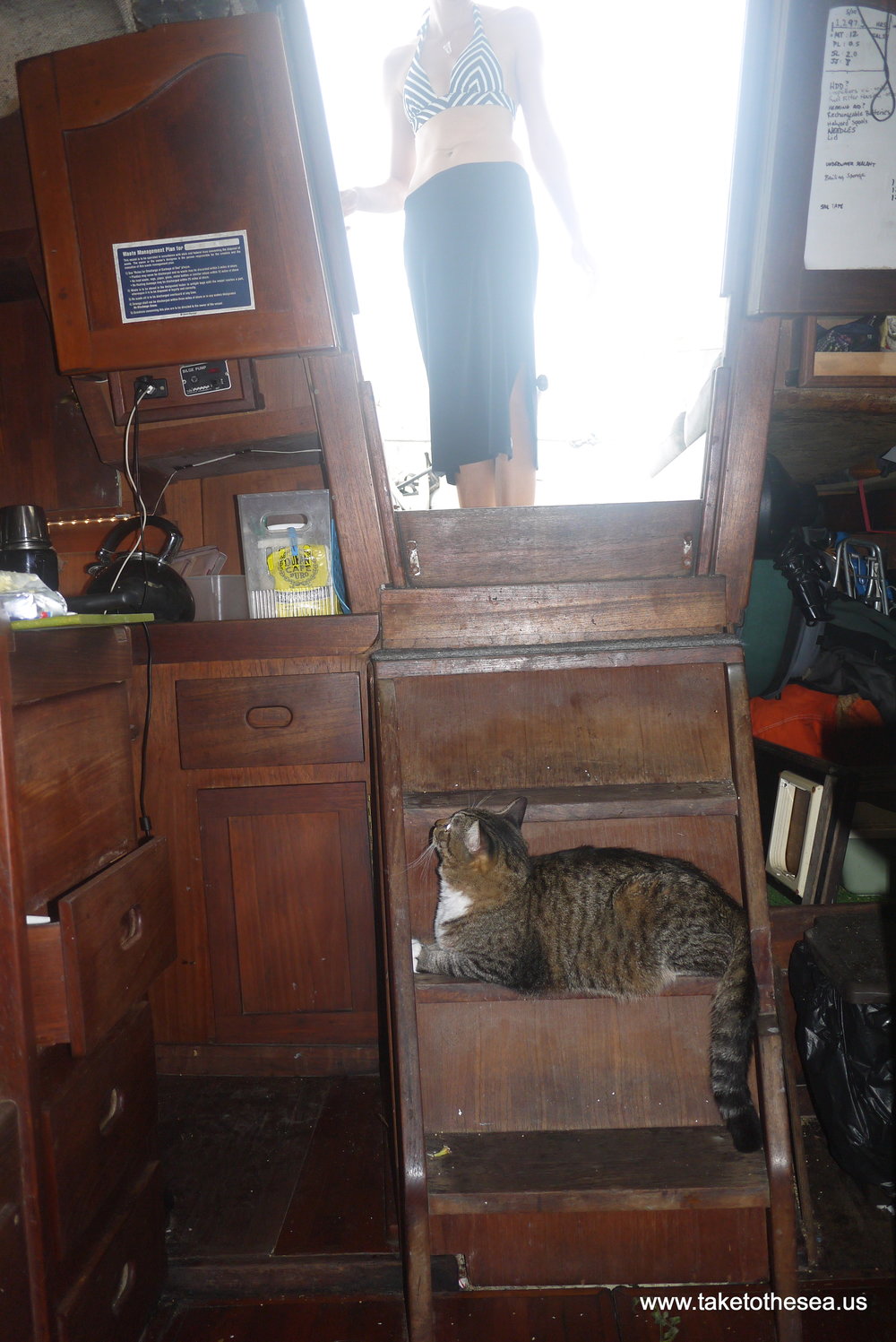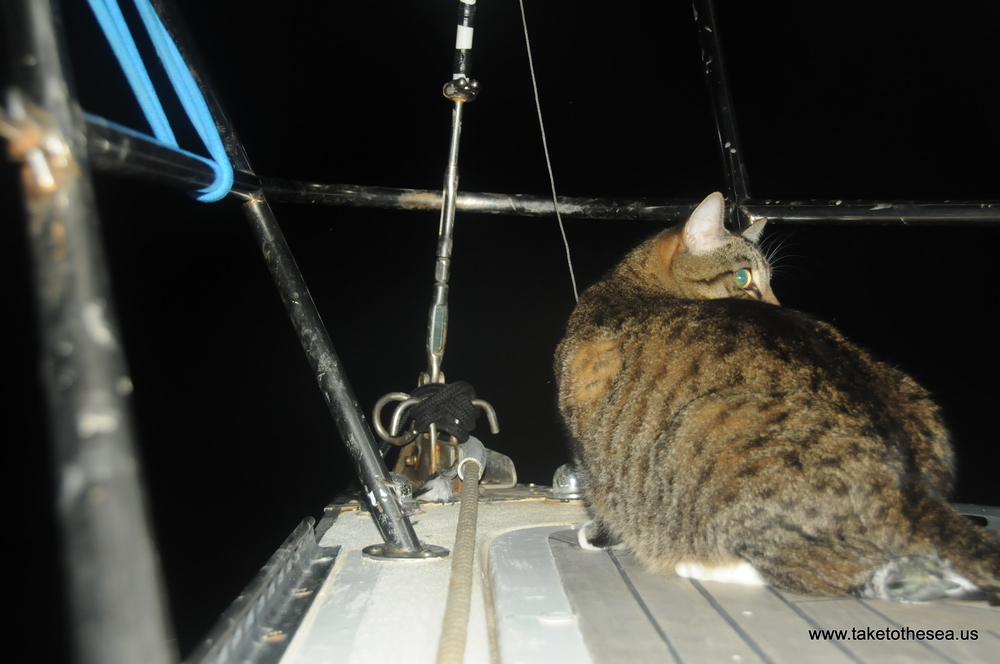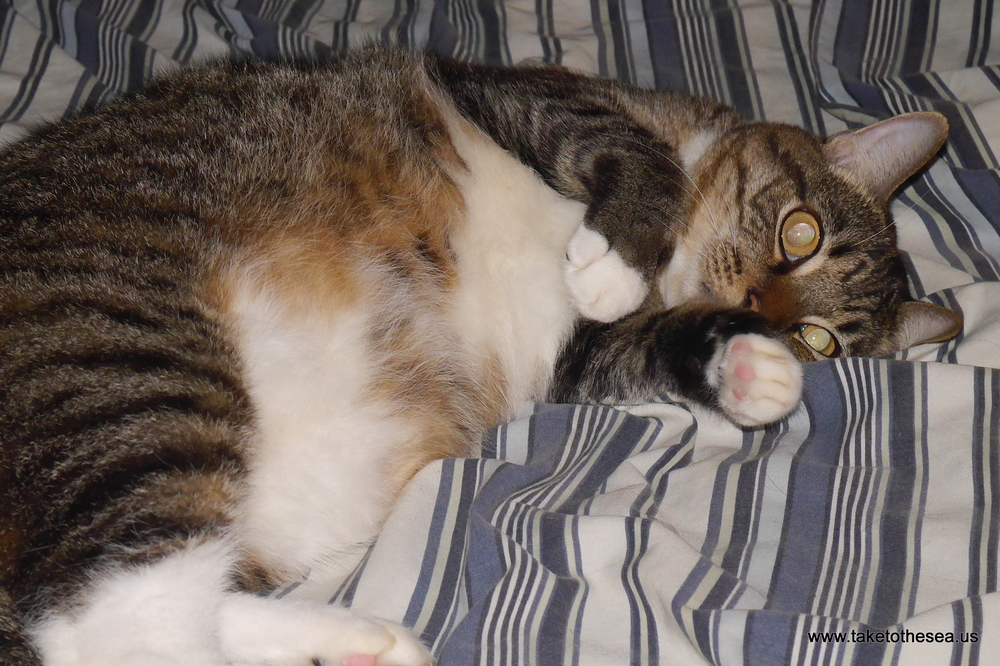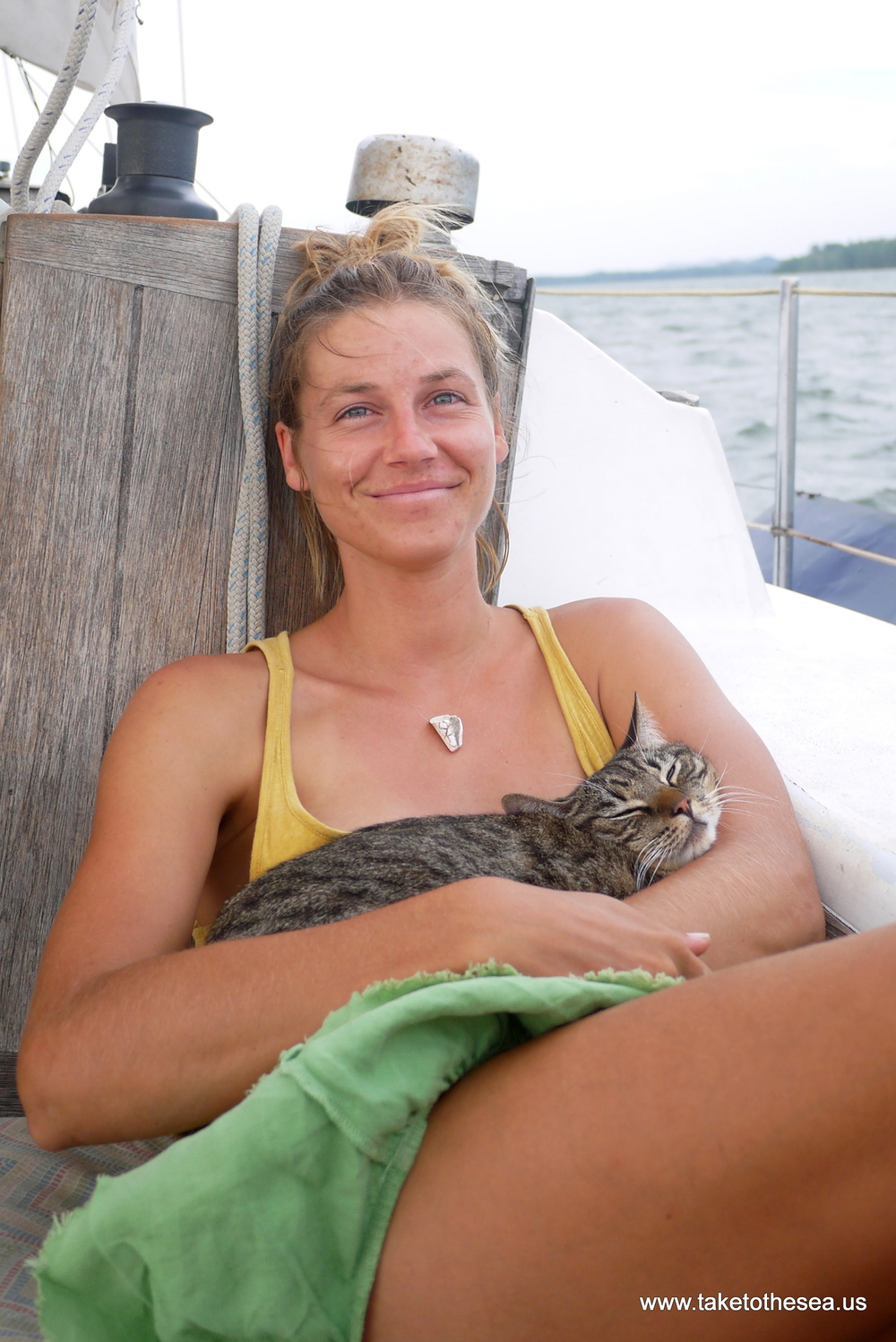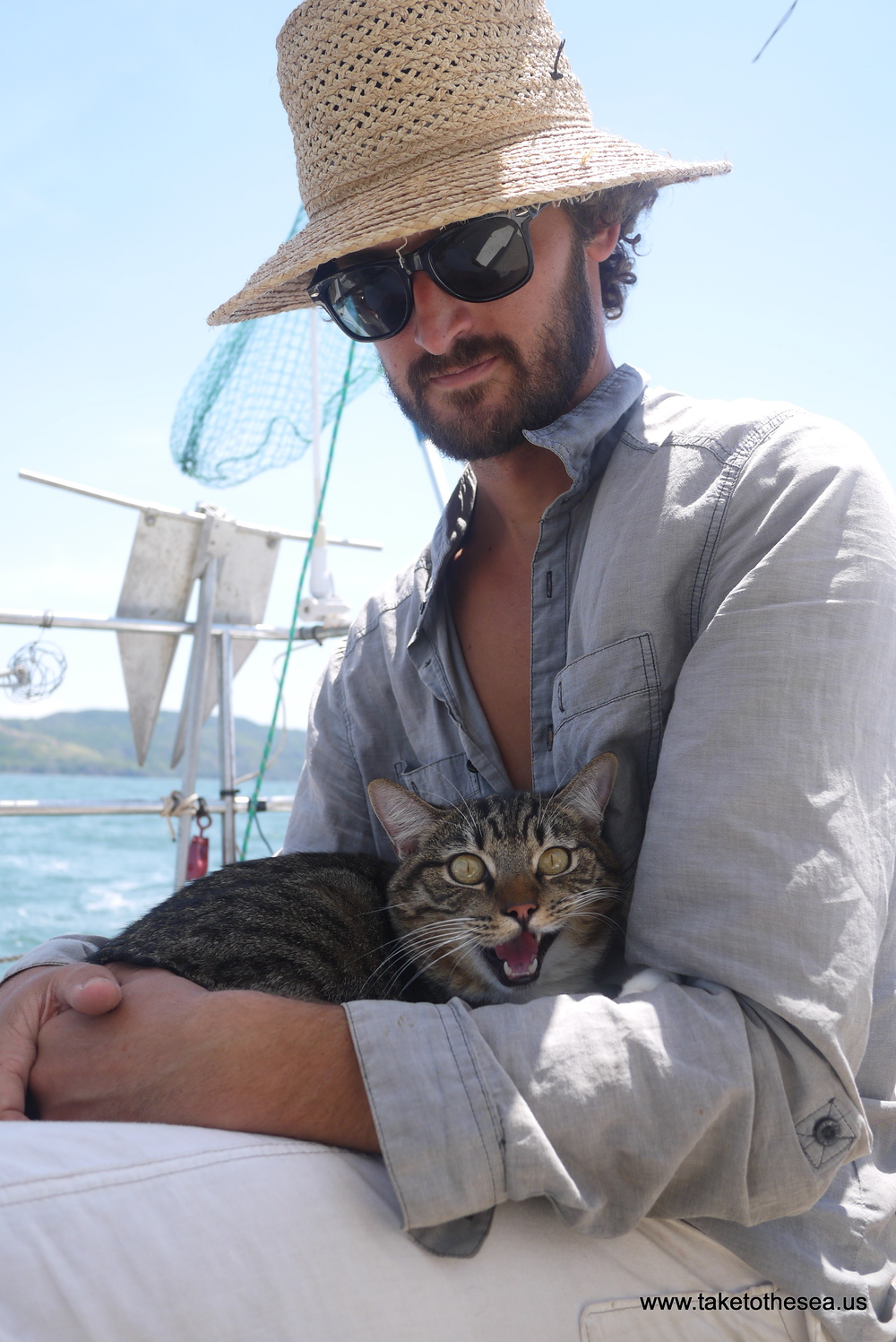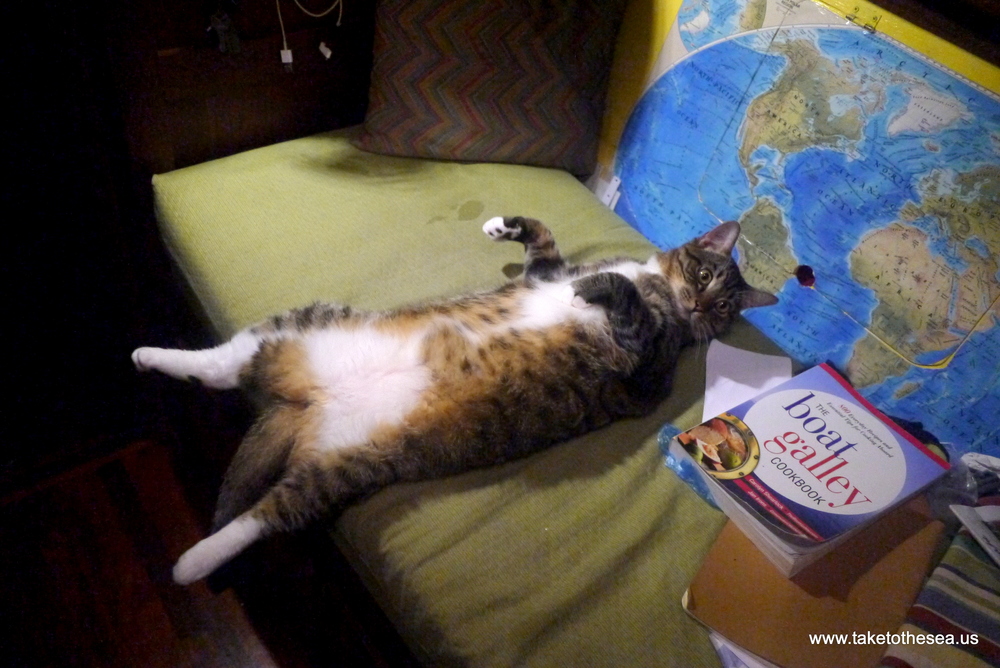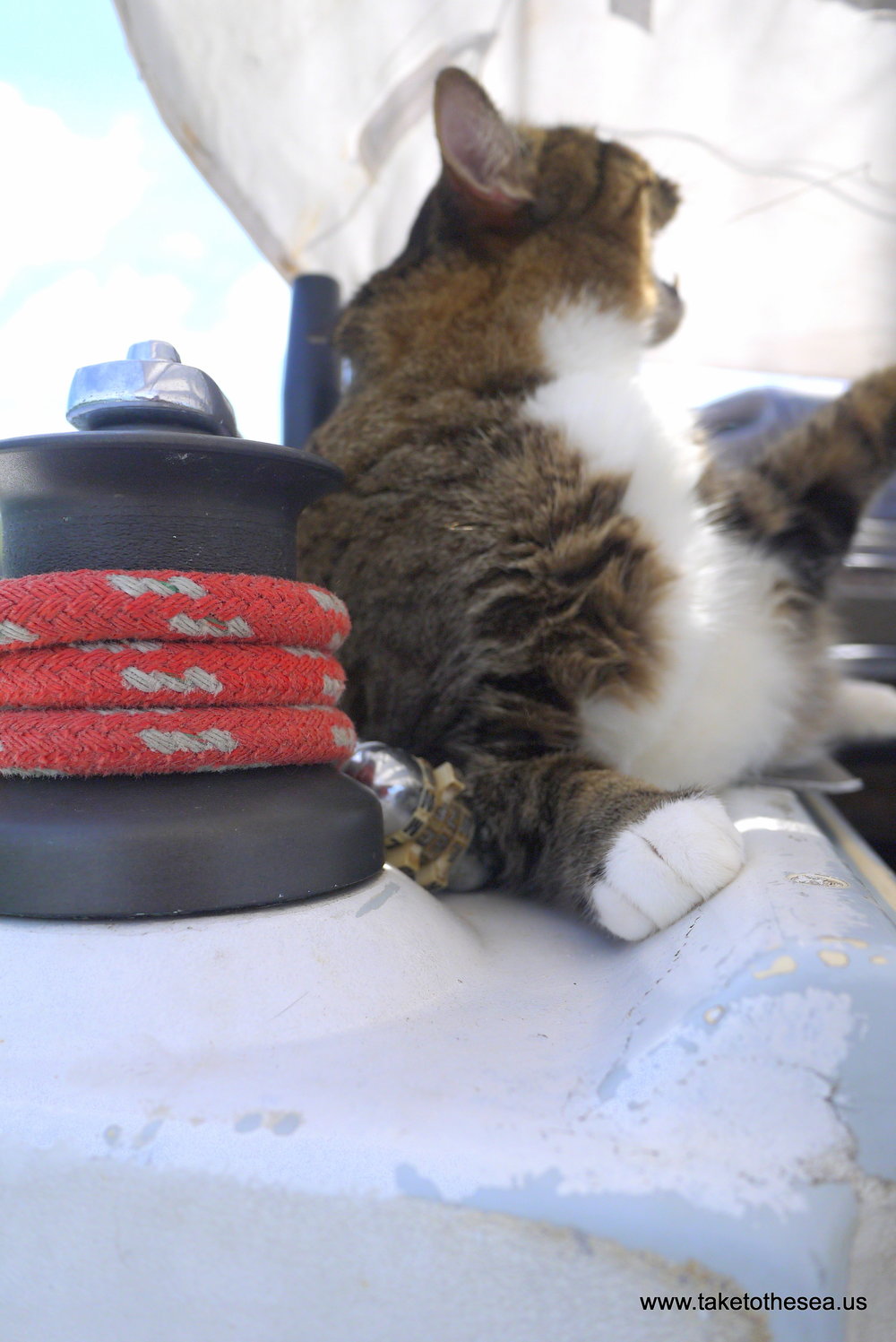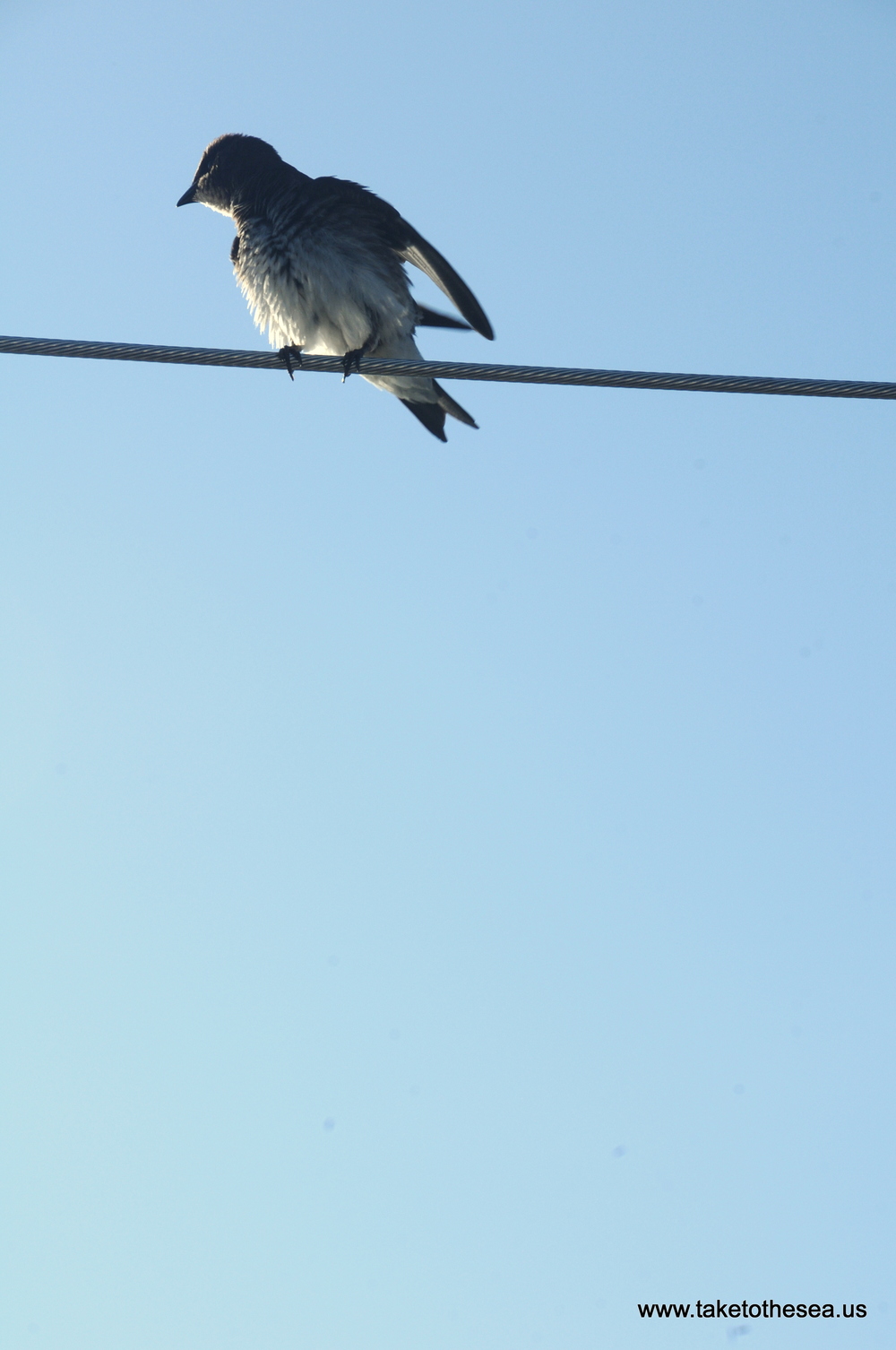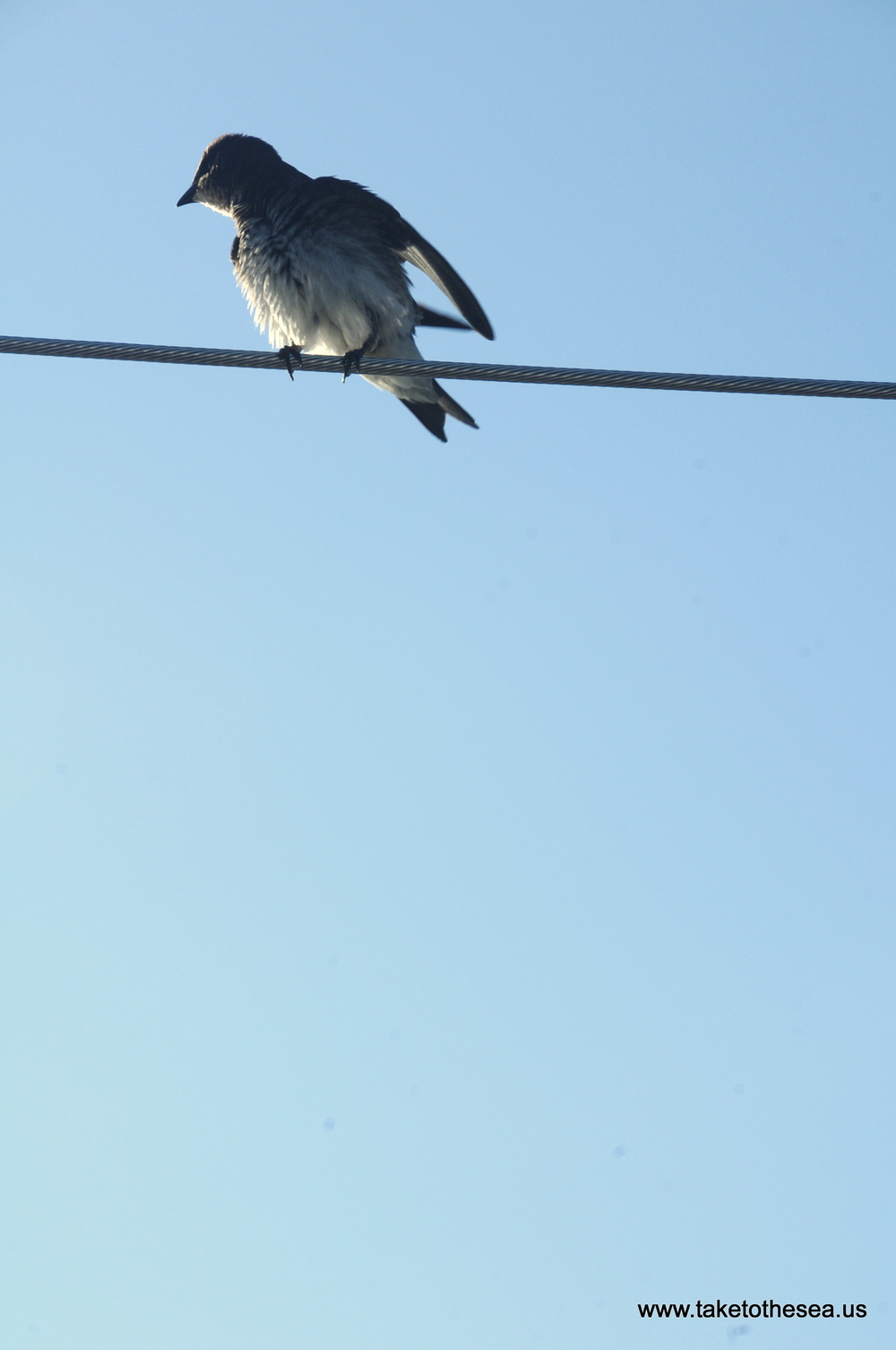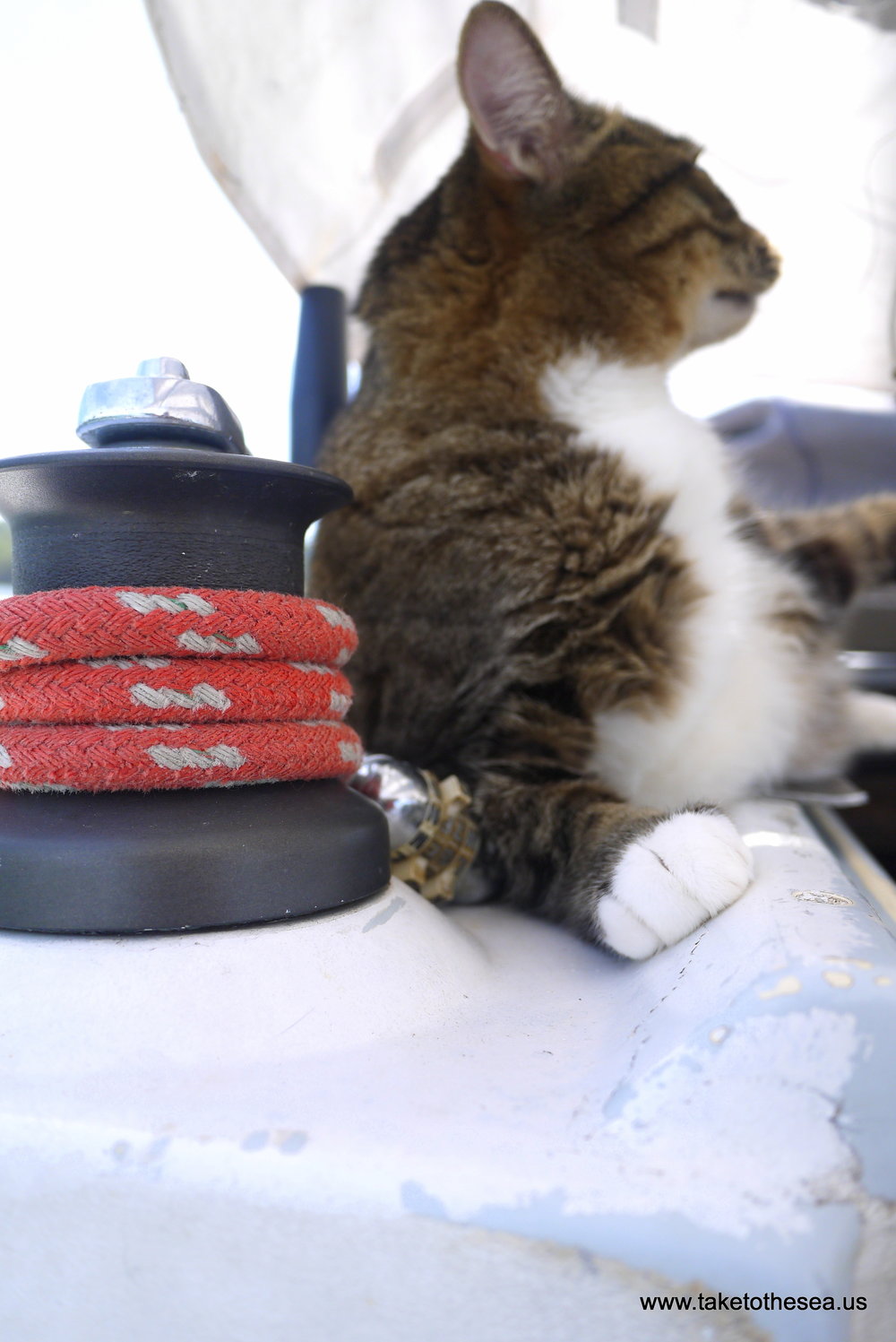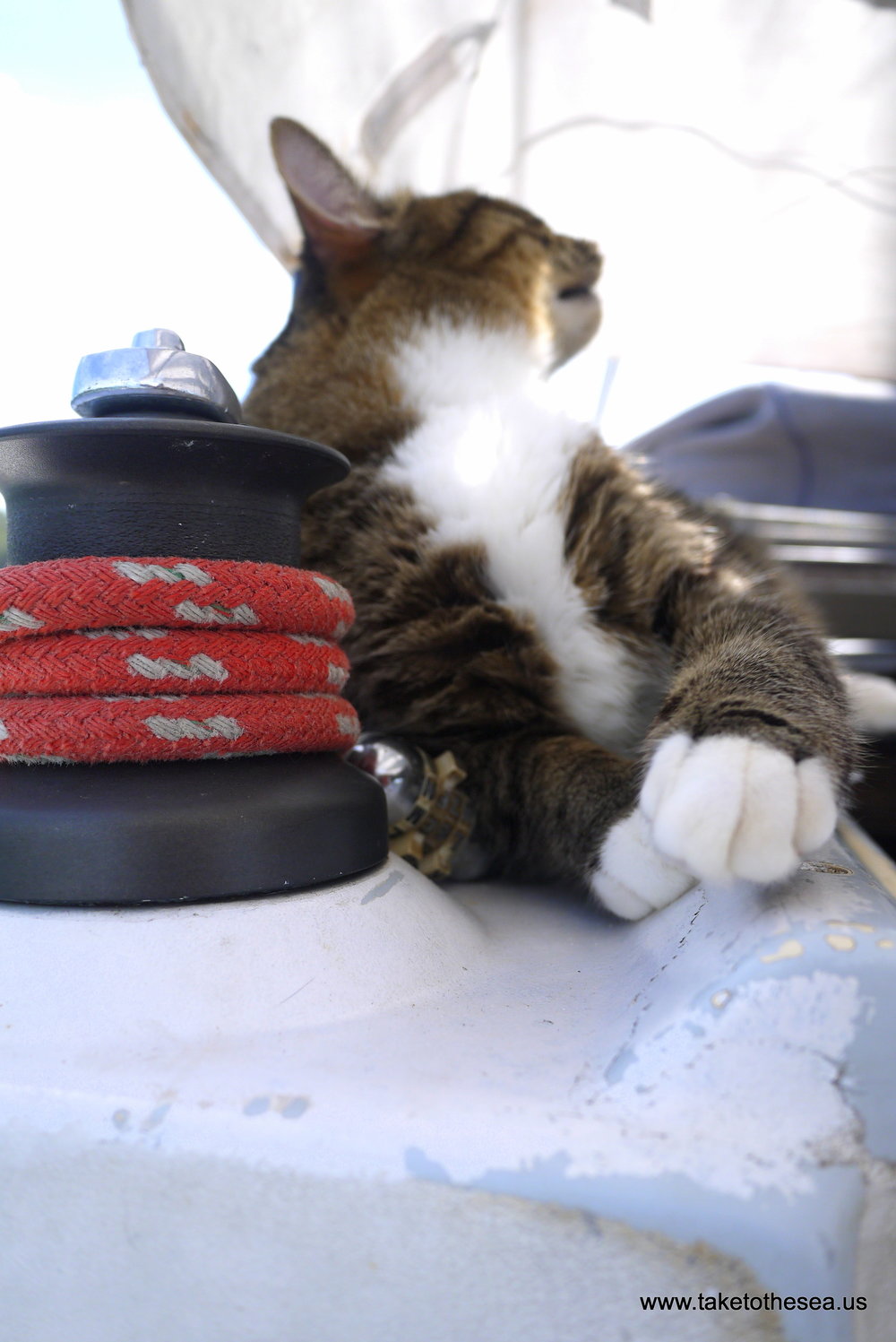“Es gordo, pero es agil / He’s fat, but he’s agile,” Alan said with a touch of respect after reporting the number of dead birds he had found on the foredeck. He was a 20-year-old water taxi driver in Boca Chica who had become the guy we called when we were caught on the wrong side of the tide without the dinghy, and he had been caring for Tack while Harmony and I were off gallivanting on someone else’s boat through the Panama Canal. Alan’s comment about sums up our cat these days.
Tack has been on this boat now for two and a half years. It has been one year since he last touched land that was not the inside of a veterinary office after a mile-long dinghy ride up the estuary inside a small cage and a remarkably chill drive up the pan American highway. Other than that, it’s been all boat, all the time. Harmony and I would come back from an afternoon in town, and there he would be at the back of the boat waiting for us. As Harmony tied the dinghy line to the rear cleat, Tack would bat playfully at her hand, and he wove between our legs meowing greetings as we unlocked the main hatch. He still makes his morning appointments for snuggles in bed.
It wasn’t always like this. While we spent the first two months of last year’s hurricane season back in the northwest, Tack had a bachelor experience of his own in Chiapas. The boat was all his and a new world was open to him. He had company in the form of the children from a local family who came to feed him, the marina guys who tracked his whereabouts, and the best neighbors you could ask for dropping by from time to time with treats and a little love. When we got back, Tack was looking trim and at home. The marina guys relayed to us that every night around 1 am they would see him stalk across the wide concrete parking lot into the jungle beyond, always back on the boat by morning. He was the gringo survivalist as played by a cat. Part of me was a little envious.
I felt so bad for him when we left land behind again and stranded him on this artificial island. The only sand he touches is in the litter box. His only friends besides us are the ones he can catch, and their friendship is not long lived. He lounges around a lot, but I’ve had to remind myself that this is normal behavior for cats. He still likes his feather on a string from the beach in Ilwaco, and if his boredom looks desperate enough I spread a little dried pure-leaf catnip into the shag rug.
Every night he goes on a tear around the deck, pouncing on the sail bags, walking the tight rope of the boom, and trampolining on the stretched canvas over the cockpit, testing my hand stitched seams with his elegant bulk. He is like the nimblest of sumo wrestlers, the fluid fat disguising the ballerina’s grace and hard body beneath.
In Boca Chica, Tack was a prolific ecologist, collecting avian specimens for us once or twice a week. We created this euphemism to salve the guilt we felt at having inadvertently brought a sport hunter on safari. I am happy that he has a hobby though, and you could argue that our poor luck fishing due to our slow cruising speed has helped keep the scale of our detrimental environmental impact in balance.
At the start of this month we began our journey toward home and said goodbye to Boca Chica for the last time. Tack appeared at first in disbelief. I think he had finally begun to hope that the boat’s long hiatus from travel meant that it was at long last dead in the water. The shock of the continuous engine rumble for days on end sent him at first into a fugue in the laundry hamper, with occasional desperate retreats into one of our laps, but towards the end of the week he could be seen once again perusing the decks or gazing across the water from the cockpit. His ability to adapt is an inspiration. He makes it work.
Now here we are in Puerto Mutis for the final time, gassing up and provisioning for our longest ocean passage yet: 800 miles straight to our old home in Chiapas, Mexico. Tack is about to have another challenge in bottomless compulsory patience, also known as two weeks at sea. I am looking forward to seeing his reaction, however, when he realizes where lies at the end. Who knows, he might disappear into the jungle forever and leave those crazy fools to their stupid floating house. I hope we can catch some fish along the way, if only to remind the cat that we are the providers.
